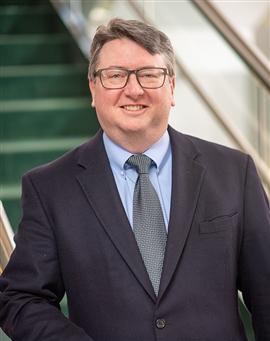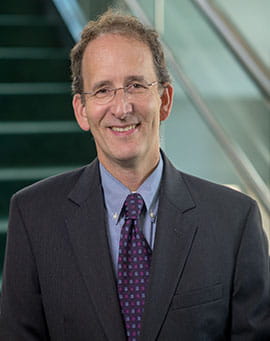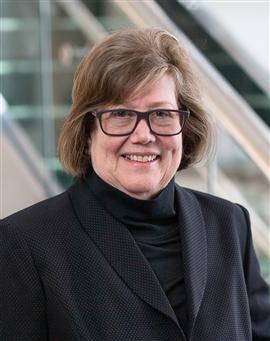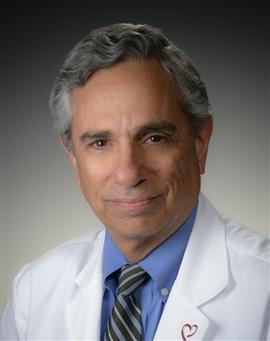Endowed Chairs

The Havens Chair for Biomedical Research
George C. Prendergast, PhD, President & CEO, Lankenau Institute for Medical Research
George C. Prendergast, PhD, President and CEO of Lankenau Institute for Medical Research (LIMR), was named the inaugural holder of The Havens Chair for Biomedical Research in 2017.
Prendergast has led LIMR since 2004, using his experience in the pharmaceutical industry as well as academia to steer the Institute in new directions focused on medical invention—a hybrid organizational model he calls acapreneurialism. In this effort, he has become widely known as an innovator in improving ways to translate basic research findings into clinical applications.
As an accomplished biomedical scientist recognized for his expertise in cancer biology, immunology and molecular therapeutics, Prendergast has focused on the creation of therapeutics that attack biological modifiers of disease severity and therapeutic response. In particular, he has worked with Alexander Muller, PhD, at LIMR in developing indoleamine 2,3-dioxygenase (IDO) inhibitors as a novel class of drugs to improve the immune response and therapeutic outcome in cancers treated with chemotherapy, radiotherapy or immunotherapy.
Prendergast has contributed over 200 peer-reviewed publications in the field of cancer research, and he is an inventor or co-inventor on 50 published or pending U.S. and international patents.
The Havens Chair was created through the combination of a $1 million gift from leading Lankenau benefactors Peter and Louise Havens that was matched by a $1 million grant from the Lankenau Medical Center Foundation through its matching initiative designed to encourage large-scale, transformational philanthropic commitments.
Peter and Louise Havens have a storied family history at Lankenau that goes back several generations. Peter’s great-grandfather, Hermann Hessenbruch, was the president of Lankenau from 1901–1913 following the passing of John D. Lankenau. Peter’s grandmother, Florence Dreer Hessenbruch, was the first president of the Women’s Board, as well as the founder of the Deaver Auxiliary and the Gift Shop at Lankenau.

Joseph and Ray Gordon Chair in Clinical Oncology and Research
Scott Dessain, MD, PhD
Scott Dessain, MD, PhD, was named The Joseph and Ray Gordon Chair in Clinical Oncology and Research in 2017. The Gordon Chair was established to support critical cancer investigations at Lankenau, and Dessain was chosen as the inaugural chairholder because of his cutting-edge work in oncology and immunology.
In his LIMR laboratory, Dessain and his team pursue several research avenues to treat human disease, including cancer, neurological illnesses, polio and disorders triggered by bacterial toxins. His work builds on a powerful technology he developed to clone “native” human monoclonal antibodies that have special advantages—they have the highest affinity and specificity and are as safe and effective as antibodies created naturally in the body. Dessain’s research has been funded by the National Institutes of Health, the World Health Organization, Bill and Melinda Gates Foundation and Sharpe-Strumia Research Foundation.
Dessain is building a new research program in myelodysplastic syndromes and acute leukemia. In his practice at Lankenau Medical Center, he treats patients with lung and blood cancers and teaches clinical oncology to medical fellows.
Additionally, in 2021, he and his colleagues achieved a groundbreaking advance, creating a rapid diagnostic test to distinguish between Delta and non-Delta variants of COVID-19. As the first rapid test to identify any of the COVID-19 variants, it provides the basis for detecting future variants of concern.
The Gordon Chair supports a hybrid clinical and research role. It aims to translate cancer research from theory to practice—or from “bench to bedside.” This idea was championed by longtime Lankenau Foundation board member Joe Gordon and his daughter Leila Gordon, a current Lankenau Foundation board member, and supported by Leila’s brothers Scott and Hunter. Through their philanthropic arm, The Gordon Charter Foundation, they established the Gordon Chair with a $1 million gift in memory of their late wife and mother Ray Gordon. Their contribution was matched with a $1 million grant from the Lankenau Medical Center Foundation through its matching initiative designed to encourage large-scale, transformational philanthropic commitments.
Joe and wife Ray were true guiding lights of the modern era of Lankenau Medical Center, leaving an indelible mark on the Lankenau community. Notably, they provided innovative and astute leadership, combined with a generous philanthropic spirit toward the medical center and LIMR over nearly 40 years of volunteer service to both institutions. A longtime emeritus member of the Lankenau Board of Trustees, including a stint as its chairman, Joe Gordon also served as chairman of the Main Line Health Board of Trustees from 1988 to 1998. Joe recognized the strategic benefits of Lankenau and Bryn Mawr Hospital joining forces, and he played a critical role in the complex negotiations that resulted in the formation of Main Line Health in 1985, with the addition of Paoli Hospital one year later.

The Daniel B. and Florence E. Green Endowed Chair in Regenerative Medicine Research
Ellen Heber-Katz, PhD
Most recently, The Daniel B. and Florence E. Green Endowed Chair in Regenerative Medicine Research was established at LIMR in 2021. The inaugural chairholder, Ellen Heber-Katz, PhD, is a scientist conducting revolutionary research into anti-aging and tissue regeneration.
Two decades ago, Heber-Katz shocked the scientific world by showing that a strain of laboratory mice can regenerate damaged tissue. Soon, she will be able to test a new regeneration drug for effectiveness in healing chronic wounds and treating diseases of aging in humans.
Most strategies for tissue regeneration are based on implanting or transplanting stem cells. However, her approach offers an off-the-shelf option that represents FDA-approvable medicine. Further, she has found that her approach in aged animals seems to produce a rejuvenating effect, stimulating an anti-aging phenomenon. Upcoming studies will examine the durability of this effect.
The chair was made possible with a gift of $1 million from The Green Family Foundation, paired with a $1 million match from the Lankenau Medical Center Foundation through its matching initiative designed to encourage large-scale, transformational philanthropic commitments.
The late Daniel B. Green was a former trustee of the Lankenau Foundation, beginning his board service in 1976 and named an emeritus trustee in 2009. During his decades-long involvement on the board, his support included leading the Tribute Committee of Lankenau’s Heart Pavilion Gala and actively supporting many other events to benefit the Lankenau Heart Institute and LIMR. Green was the chairman and CEO of Firstrust Bank from 1970 to 2005 and chairman emeritus until his passing in 2020. Arlin Green, son of Daniel and Florence Green, currently serves as a Lankenau Foundation board member and as a member of The Green Family Foundation.
Heber-Katz has received grants from the National Institute of Dental and Craniofacial Research, National Institutes of General Medical Sciences, National Institutes of Allergy and Infectious Diseases, the Department of Defense, Defense Advanced Research Projects Agency, and private foundations.

William Wikoff Smith Chair in Cardiovascular Research
Peter R. Kowey, MD
Peter R. Kowey, MD, has held The William Wikoff Chair in Cardiovascular Research since 2008, when the W. W. Smith Charitable Trust created the endowed chair with a $1.5 million contribution.
Kowey graduated from the University of Pennsylvania Medical School and trained in cardiology at the Peter Bent Brigham Hospital (now Brigham and Women’s Hospital) and the Harvard School of Public Health before spending nine years as an academic cardiologist at the Medical College of Pennsylvania. During the next 25 years, Kowey and his dedicated staff turned Lankenau into an internationally renowned heart-care hospital. He is a pioneer in cardiology and electrophysiology research.
Kowey regularly chairs committees and moderates discussions at national and international conferences; consults extensively with industry and government agencies, including the Food and Drug Administration; gives presentations on cardiac arrhythmias; writes papers, textbooks and chapters (both alone and with faculty and fellows); and—especially pertinent to LIMR—advances basic and clinical cardiovascular research. He has stayed active since stepping down as chair of cardiology in 2015 and remains a professor with LIMR.
The W.W. Smith Charitable Trust has historically made and continues to make its greatest investment in medical research, particularly basic and clinical research in the areas of heart disease, cancer and AIDS. Even with impressive gains, there are still many diseases for which there are no cures, requiring more work to understand their origins and progression. The Trust has a longstanding history of philanthropic support to Lankenau Medical Center and LIMR, providing its first gift to support LIMR cancer research in 1978. Grants since that time have supported various initiatives including cardiovascular and cancer research, robotic surgical equipment and support for underserved oncology patients.
